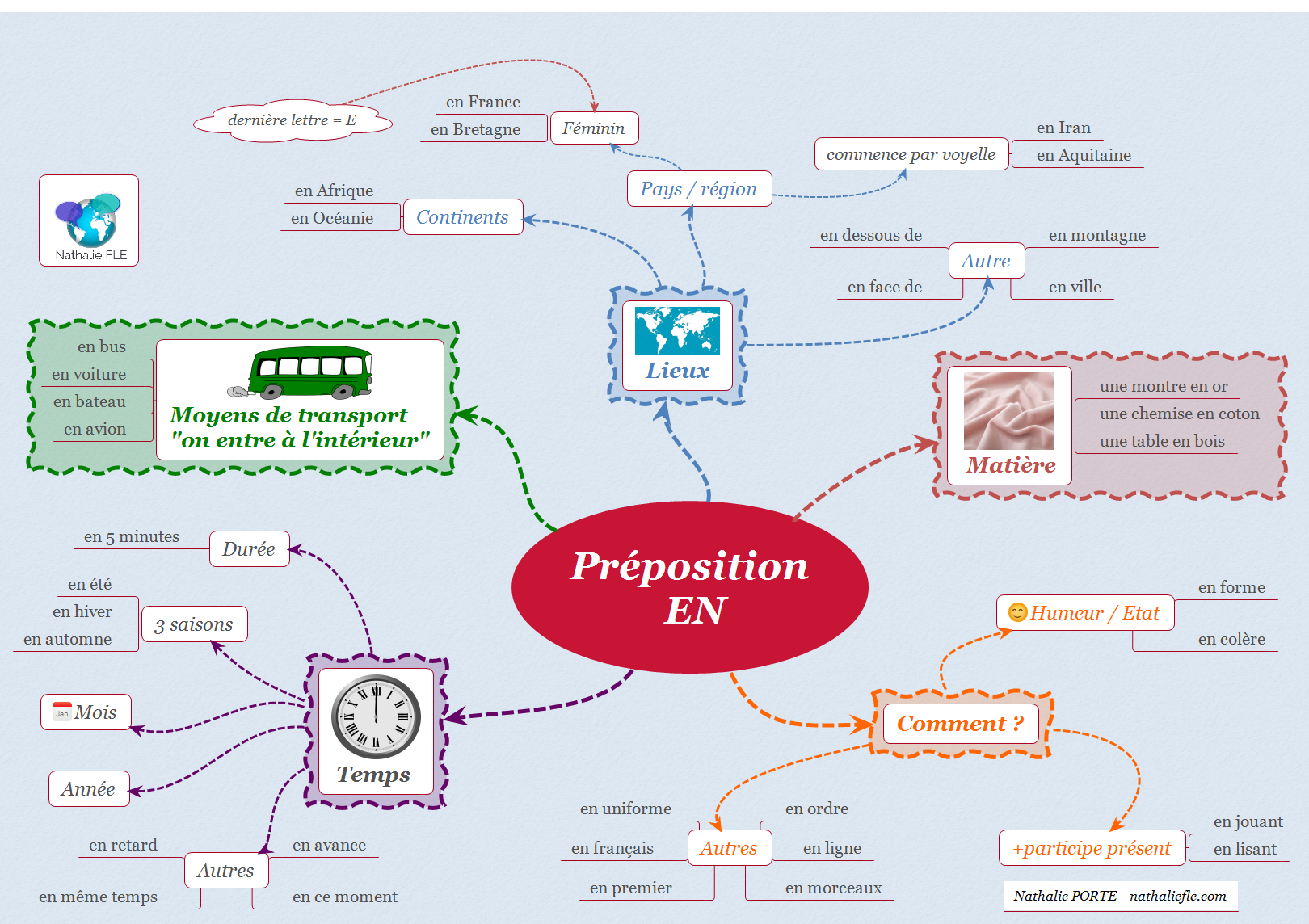Language/French/Grammar/Use-of-en
Rules & Examples[edit | edit source]
en is the pronoun used to replace phrases introduced by de which follow the verb. Where these include a noun, en can refer to both human and non-human nouns:
- Il a déjà parlé de son idée
He has already spoken about his idea
- Il a empêché lean-Pierre de travailler
He stopped jean-Pierre working
- Mémé s'occupe des enfants
Grandma is looking after the children
- Christine est fière de son frère
Christine is proud of her brother
- Il en a déjà parlé
He has already spoken about it
- Il l'en a empêché
He stopped him doing it
- Mémé s'en occupe
Grandma is looking after them
- Christine en est fière
Christine is proud of him
In spoken French, where people are referred to, it is quite likely that a stressed pronoun following de will be used instead:
- Mémé s'occupe d'eux
- Christine est fière de lui
NB: An exception to the generalization that en can replace phrases introduced by de is those verbs, such as permettre, défendre and interdire, with a construction using . . . à quelqu'un de faire quelque chose. The infinitive clause is treated as a direct object:
- Elle a permis à Jean-Marie d'emprunter sa voiture
She allowed jean-Marie to borrow her car
- Elle le lui a permis (le means 'to borrow the car')
She allowed him to do it
- Il a défendu à Suzanne de sortir ce soir
He forbade Suzanne to go out this evening
- Il le lui a défendu (le means 'to go out this evening')
He forbade her to do it
Why is it difficult to choose prepositions in French?[edit | edit source]
First of all, you should know that you cannot translate a preposition automatically from one language to another. Depending on the situation, there are several translations. You should always think about the meaning of the sentence. For a situation that seems identical, there are several possible prepositions but only one is correct in your specific case. I'm sure you already know that in front of the names of countries, there are several possible prepositions: EN but also AU, AUX, or DE, D ’, DU.
For each country and each sentence, only one preposition is correct!
Mental Card of the EN preposition[edit | edit source]
- Source: https://nathaliefle.com/wp-content/uploads/2016/11/Pr%C3%A9position-EN.png
Video: French Preposition EN[edit | edit source]
Other Lessons[edit | edit source]
- Gender of makes of vehicle and machines
- Agreement of the past participle having the auxiliary "être" in compound tenses
- Categories of Nouns in French
- Omission of the article in lists
- Past Tense
- Difference between Nombre, Chiffre and Numéro
- Emphasizing the reciprocal use of se by adding l'un l'autre
- Adjectives with complements
- Use of y in constructions where à does not introduce an indirect object
- Differences in the use of numbers in French and English once twice
- Namesake
- Plurals of nouns ending in –al
- Conditional Mood and Future Tense
- Use of ce, cela, ça as neutral pronouns
- French Ditransitive verbs


